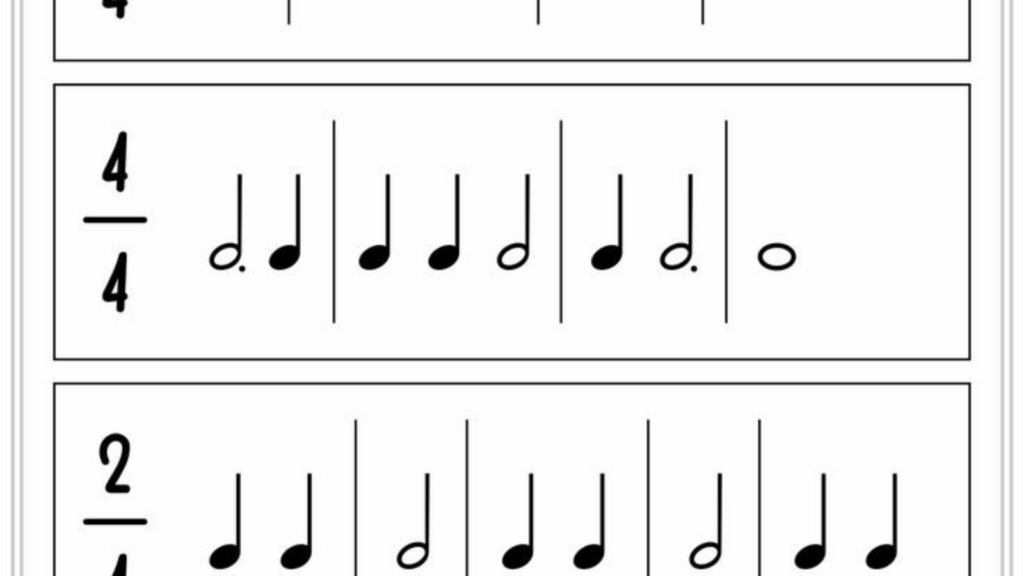Strumming the strings, feeling the rhythm, and creating harmonious melodies – that’s the magic of playing the guitar. But to truly unlock the instrument’s potential, there’s a secret key: understanding music theory. This article will delve into the fascinating world of music theory for guitarists, a realm where notes, scales, and chords form the language of music.
Music Theory for Guitar
Grasping music theory provides indispensable avenues for guitarists. It allows players to recognize notes, scales, and chords on the fretboard with ease. Musicians can identify note relationships, creating harmonious melodies and rhythms. By understanding this theory, guitarists enhance their ability to compose and improvise, boosting their performance.
Fundamental Aspects of Music Theory
Diving deeper, three fundamental aspects facilitate a guitarist’s comprehensive understanding of music theory: understanding keys, reading sheet music, and mastering timing and rhythm. Ensuring fluency in these areas significantly improves a player’s overall musicianship.

Guitar scales represent arrangements of notes, acting as a core concept in musical theory. Guitarists gain a pivotal tool for solos, songwriting, and improvisation through a thorough understanding of these sequences. They constitute the ‘building blocks’ of music, from simple blues to complex jazz compositions. The guitar possesses unique scale patterns, with an example being the commonly used pentatonic scale, an arrangement of five notes per octave. These building blocks allow for an in-depth exploration of musical possibilities, providing a foundation for melody and indicating which notes work harmoniously together. Knowledge of scales ties intricately into the stringed instrument’s overall framework, reinforcing the previously outlined fundamental aspects of guitar music theory.
Chord Theory for Guitar Players
Chord theory becomes instrumental as guitarists elevate their skills. Distinct from scale patterns, chords involve playing three or more notes simultaneously, producing a harmonic sound. A guitarist’s familiarity with chord types and progression rules, specifically major, minor, and seventh chords, dictates the melody’s depth. Structured chord progression sequences define popular musical genres, with variations adding unique touches to compositions. Effective use of chord inversions and voicings even contributes to a more fluid and sophisticated sound experience. Altogether, chord theory forms a fundamental component of guitar music theory, navigated through knowledge of chord construction, progressions and variations.
Applying Music Theory on Guitar Playing
After familiarizing oneself with basic music theory for guitar, applying them in guitar playing paves the way for enhanced musicianship. This process involves strategic fretboard navigation, precise chord transitions, and tactful utilization of scales during solos. Incorporating music theory in guitar playing also provides the platform to create unique melodies, improve songwriting abilities, and effectively analyze musical pieces.
Learning Resources for Guitar Music Theory

To advance one’s understanding of music theory for guitar, exploring a variety of learning resources becomes imperative. Innovative resources including textbooks, online courses, YouTube channels, and mobile apps harbor wealth of knowledge. They present distinct learning pathways to tackle complex theories, like modal theory, jazz chords, extended and altered chords, and counterpoint. Consequently, it elevates musicianship, inspires creative melodies, and enriches songwriting capabilities. Next, these are few strategic resources to consider:
- Textbooks: Renowned books like ‘Tonal Harmony’ by Stefan Kostka and Dorothy Payne, and ‘The Study of Orchestration’ by Samuel Adler present in-depth insights. They elucidate concepts with concise examples and practical exercises that deepen theoretical comprehension.
- Online Courses: Platforms like ‘Coursera’ and ‘Udemy’ offer meticulously designed courses. Their interactive and step-by-step modules encapsulate intricate details of advanced music theory, making the learning process fluid.
- YouTube Channels: Channels like ‘Signals Music Studio’ adeptly explain hard-to-grasp concepts with engaging audio-visual content. It promotes visual and aural learning, thereby facilitating a comprehensive understanding of complex topics.
- Mobile Apps: Apps like ‘Tenuto’ and ‘Music Theory Pro’ merge learning with entertainment. They use interactive games and quizzes to instill and reinforce theoretical knowledge.
All You Need to Know
Mastering music theory for guitar isn’t just about hitting the right notes. It’s an essential tool for any guitarist, offering a deeper understanding of the language of music. As explored in this article, learning the basics like scales, chords, and timing can significantly improve musicianship and songwriting. Delving into advanced topics like modal theory and jazz chords opens up a new world of musical possibilities.



